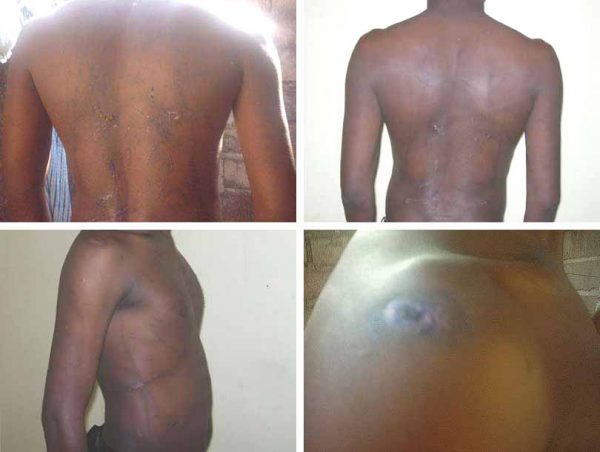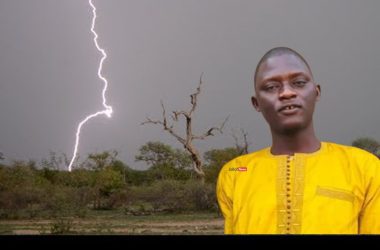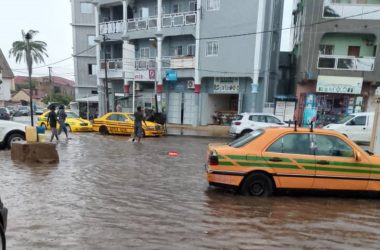
by PK Jarju
Going through photos of his days as a young editor back in his native Gambia, Musa Saidykhan fights back tears.
While most journalists reflect on their careers with pride, Mr Saidykhan feels no such fondness.
His intentions to remain in his home country, to use his pen to correct injustice, and to champion press freedom were aborted by security threats that forced him and his family into exile. He left behind his ageing parents and editorial desk in the hands of perpetrators.
Musa’s troubles with the Gambian authorities started when he was appointed editor of a private newspaper, The Independent, renowned for its criticisms against the government of former President Yahya Jammeh’s lack of respect for democracy and the rule of law.
The Gambia under Mr Jammeh’s regime had very repressive media laws and the government perceived independent journalists as enemies bent on destabilising the country.
The National Intelligence Agency, (NIA) which was responsible for protecting state security, collecting intelligence, and conducting covert operations centred its work on journalists and critics of the regime. It arbitrarily arrested, detained and tortured journalists who wrote or said anything deemed critical of the regime.
Being an editor of a paper that was regarded as anti-government made Musa a target for persecution.

“I took the job with a strong desire to serve a news-hungry population and closed my ears to warnings that I was sitting on a ticking time bomb,” he told me in an interview in 2010 . “And with a vibrant editorial team, the paper gained a strong footing in the market. Murmurs started filling the air. All eyes focused on me. People kept telling me that my editorials were too irritating.”
Musa soon became a thorn in the side of the regime and in March 2006 he was arrested and detained incommunicado for 22 days by the NIA after he erroneously named former Interior Minister Samba Bah among a group of individuals arrested in connection with a plot to overthrow the Jammeh regime.
Following the publication of the article, the newspaper realised that the Samba Bah who was detained was not the former minister but a soldier in the Gambia National Army and ran a correction in its next publication. The paper also apologised in person to the former minister who accepted the apology.
However, despite the fact that Samba Bah never reported them to the police, the authorities won’t let the matter rest.
“It was around midnight and I was fast asleep at home when a man who identified himself as Sergeant Malamin Ceesay knocked at my door and told me that I was needed at the Serekunda Police Station,” Musa told a truth commission that is set up the current Gambian administration of President Barrow to look at right abuses committed by the previous regime.
“When I opened the door, I realised that a combined team of security forces including armed soldiers and officers of the Police Intervention Unit were outside. I was arrested and taken to the Police Intervention Unit headquarters in Kanifing where I was detained for an hour before being transferred to the NIA headquarters in Banjul.
Musa together with his managing director, Madi Ceesay, were locked in a small, dark, mosquito-infested cell with no bed to sleep on.
One day whilst in detention, Musa was woken up from his sleep around 2am by the sound of a car engine. A few minutes later, a group of soldiers led by Musa Jammeh and Tumbul Tamba entered their cell and took Ceesay away.

An hour later the soldiers returned and informed him that they had killed Ceesay and buried him somewhere and it was his turn to be killed.
Recounting his torture ordeal, Musa said: “I was taken to a torture chamber where I was repeatedly tortured. For three consecutive nights, the officers would take turn to whip me with electric cables, slicing my body with bayonets. My right hand was broken three times.”
“They asked me if I knew why I was there and I told them I didn’t know. They said to me ‘you would come to find out’ and then they started hitting me with gun-butts and also administered electric shock on me.
“They dragged me inside a hallway, tore my clothes, stripped me naked and administered electricity shock on all my body including my genitals, which made me fall into a comma.
“Initially, I stood on my feet when the started beating me but as the beating intensified, I fell on the floor but they continued to beat me and stamped on my right hand.
“My right hand was broken into three places and I could hear my own bones cracked. They deliberately broke my hand and also used a bayonet to slice my jaws because they said my problem was my hand and my mouth. Their intention was to make a disabled so that I would not be a journalist again because the only tools I had were my mouth and my hand.
“I was also dragged on a concrete floor and my body was covered in bruises. I was also shackled and handcuffed and asked to run and when I was unable to run, they subjected me to more beatings lasting for about an hour.”
Ironically, it was his injuries that resulted in his release as his captors feared he might die. He was refused treatment by doctors and was later smuggled out of the country by his family to neighbouring Senegal where he spent three months in hospital.
Three
years later, Musa has successfully settled in the United States with his family.
But while the injuries may have healed, his body is still covered with scars.
“I have put the past behind me and move on with my life and I have forgiven those who have wronged me. I cannot live in pain. Failure to forgive means you are living in pain,” he said.




